Send us a link
What if we let social media rate research?
With citation indexes being routinely questioned, ‘alternative metrics’ could gain ground as a new indicator of research success. But can they be trusted?
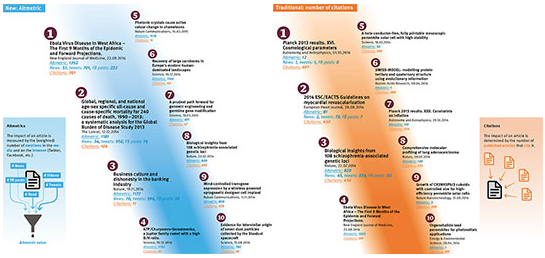
The advantage of simple paper abstracts
Paper showing that doubling the word frequency of an average abstract increases citations by 0.70% and that journals which publish papers whose abstracts are shorter and contain more frequently used words receive slightly more citations per paper.
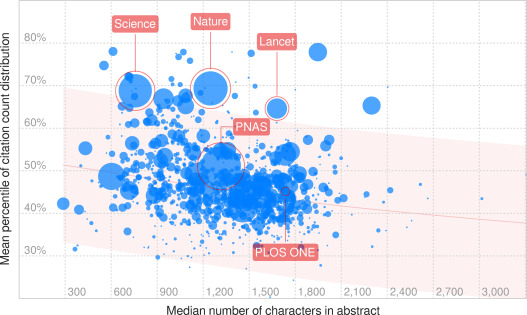
Researchers’ Individual Publication Rate Has Not Increased in a Century
Researchers’ Individual Publication Rate Has Not Increased in a Century
The total number of papers published by researchers during their early career period (first fifteen years) has increased in recent decades, but so has their average number of co-authors.
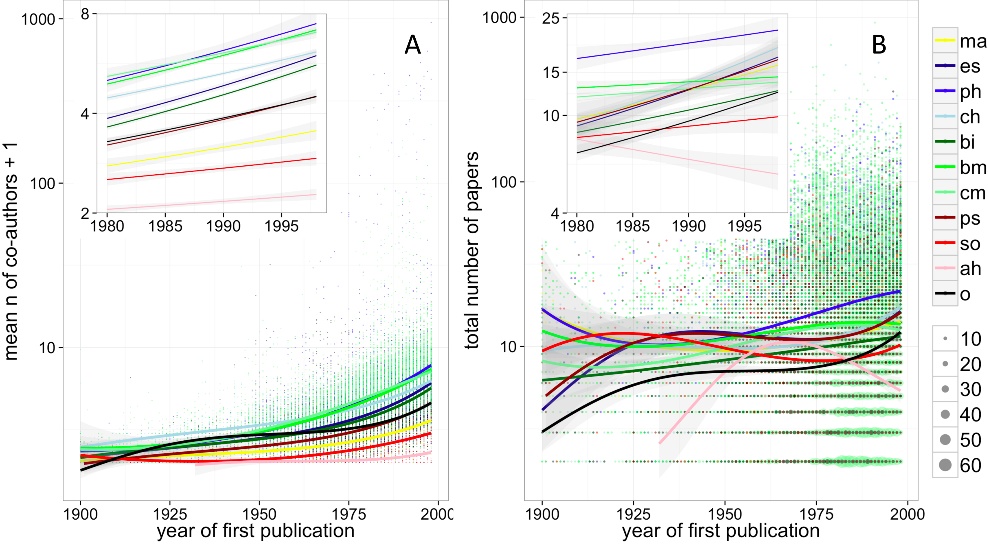
A Multi-dimensional Investigation of the Effects of Publication Retraction on Scholarly Impact
A Multi-dimensional Investigation of the Effects of Publication Retraction on Scholarly Impact
How do retractions influence the scholarly impact of retracted papers, authors, and institutions; and how does this influence propagate to the wider academic community through scholarly associations?
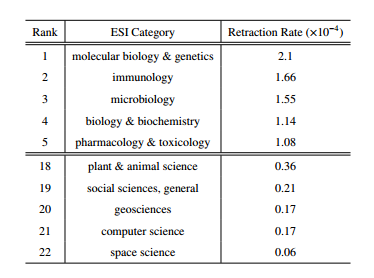
The open research value proposition: How sharing can help researchers succeed
The open research value proposition: How sharing can help researchers succeed
A review on the open citation advantage, media attention for publicly available research, collaborative possibilities, and special funding opportunities to show how open practices can give researchers a competitive advantage.

The relative impact factor of glamour journals is 2.166
Tweets of articles from Cell, Nature and Science journals all resulted in 2.166 more times clicks on the journal title rather than the anonymized links.

Rapid Science
To promote and reward collaboration we’re developing a “C-score” that measures the quality and quantity of collaborators’ contributions to group efforts.,
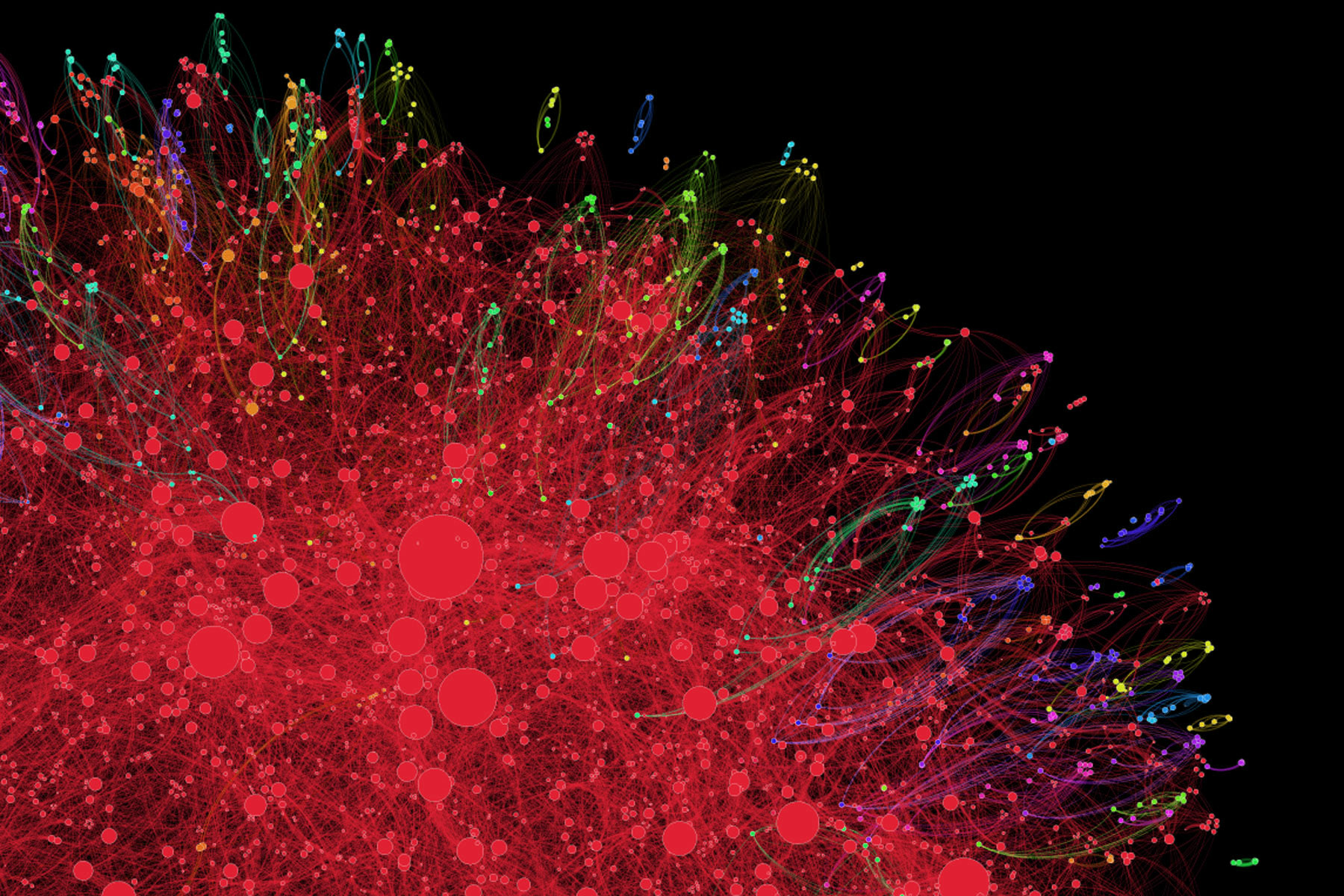
Individual bibliometric assessment at University of Vienna: from numbers to multidimensional profiles
Individual bibliometric assessment at University of Vienna: from numbers to multidimensional profiles
This paper shows how bibliometric assessment can be implemented at individual level.
iSEER: an intelligent automatic computer system for scientific evaluation of researchers
iSEER: an intelligent automatic computer system for scientific evaluation of researchers
An intelligent machine learning framework for scientific evaluation of researchers may help decision makers to better allocate the available funding to the distinguished scientists through providing fair comparative results, regardless of the career age of the researchers.

Publish or perish? Metrics and research diversity
If we want to embed equality and diversity in research culture, any future use of metrics to assess research must not adversely affect specific groups or researchers.
Getting credit for peer review
It’s rare for scientists to get much systematic or public recognition for their reviewing efforts

NSF Science and Engineering Indicators 2016
A broad base of quantitative information on the U.S. and international science and engineering enterprise.
Wikiometrics: a new, wikipedia-based ranking system
This paper presents Wikiometrics: the derivation of metrics and indicators from Wikipedia.
Selecting for impact: new data debunks old beliefs
One of the strongest beliefs in scholarly publishing is that journals seeking a high impact factor should be highly selective. There is evidence showing this is wrong.

What's in a journal name?
Scientists debate the merits of deleting journal names from their publication lists.
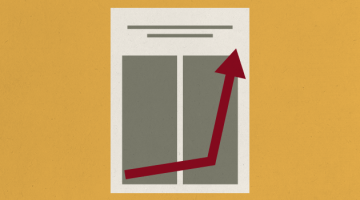
Altmetric's top 100 research articles in 2015
What academic research caught the public imagination in 2015? Altmetric has pulled together our annual list of the research that has attracted the most online attention in the past year.
Academia.edu crowdsources speedy peer review solution
PaperRank service will allow researchers to rate papers online in bid to accelerate and open up process.

A citation-based, author- and age-normalized, logarithmic index for evaluation of individual researchers independently of publication counts
A citation-based, author- and age-normalized, logarithmic index for evaluation of individual researchers independently of publication counts
A paper proposing an index (namely, the L-index) that does not depend on the number of publications, accounts for different co-author contributions and age of publications, and scales from 0.0 to 9.9.
ORCID auto-update launch a 'game changer'
ORCID has announced the launch of Auto-Update functionality, in collaboration with Crossref and DataCite.
The journal coverage of Web of Science and Scopus
The objective of this research is to describe the journal coverage of those two databases and to assess whether some field, publishing country and language are over or underrepresented.
Do academy members publish better papers?
As an institution, science is not fond of privilege. Success in science is supposed to be the result of merit - hard work, tenacity and, to some degree, sheer luck - not nepotism, favoritism, or entitlement.
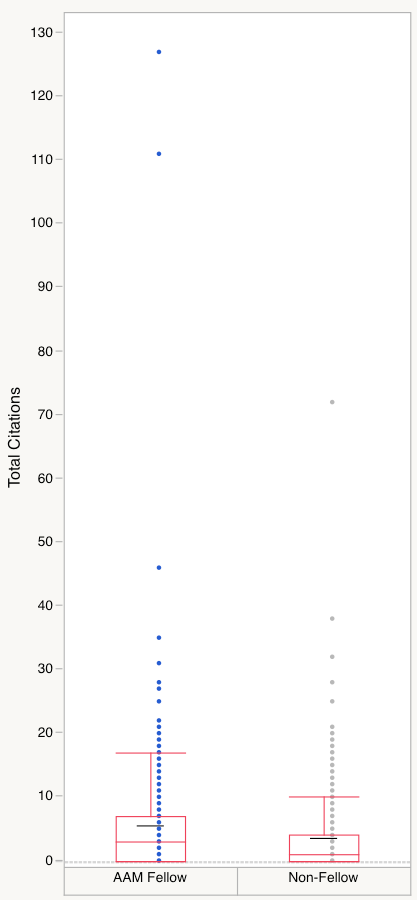
What's so wrong with the Impact Factor?
Once a paper has its perceived value raised by being cited, it’s likely to get cited again.
Altmetric for ORCID bookmarklet
This application let you see the Altmetric Score metrics of works on your browser when you click the bookmarklet in ORCID Record pages.
Crossref to Auto-Update ORCID Records
Authors with an ORCID iD will be able to have Crossref automatically push information about their published work to their ORCID record.
The evolution of impact indicators: from bibliometrics to altmetrics
Ebook covering key insights about traditional and alternative research impact indicators.
DOI Event Tracker
Crossref will be introducing a new service that tracks activity surrounding a research work from potentially any web source where an event is associated with a DOI.

